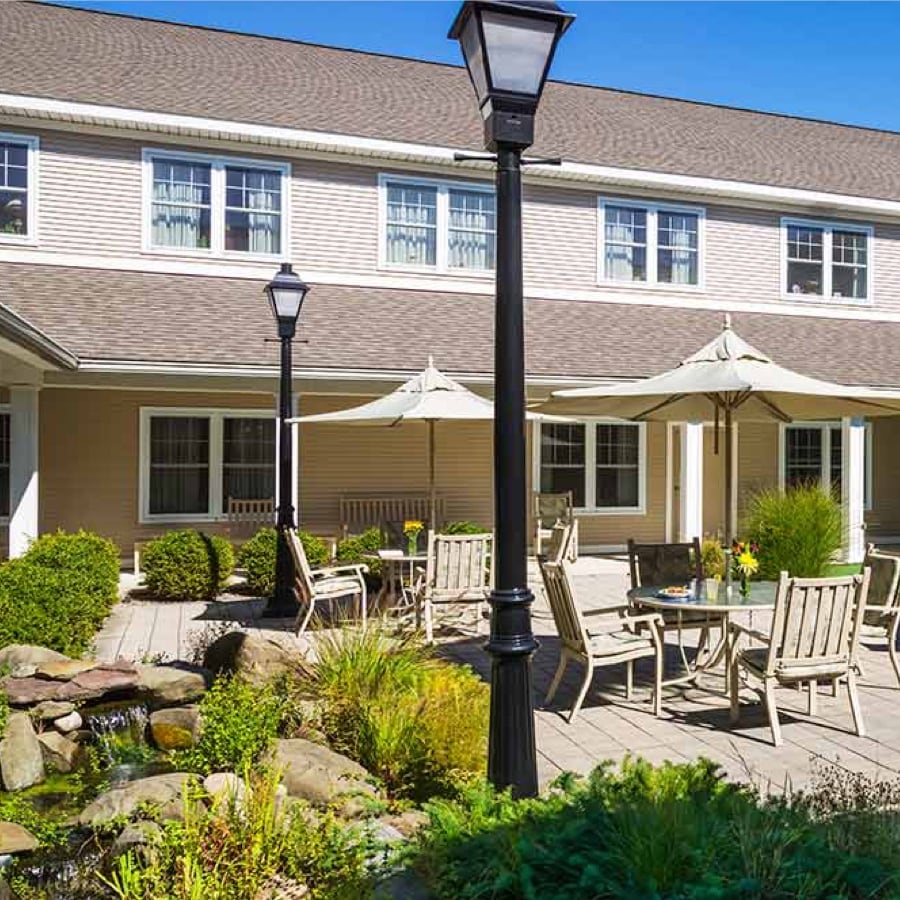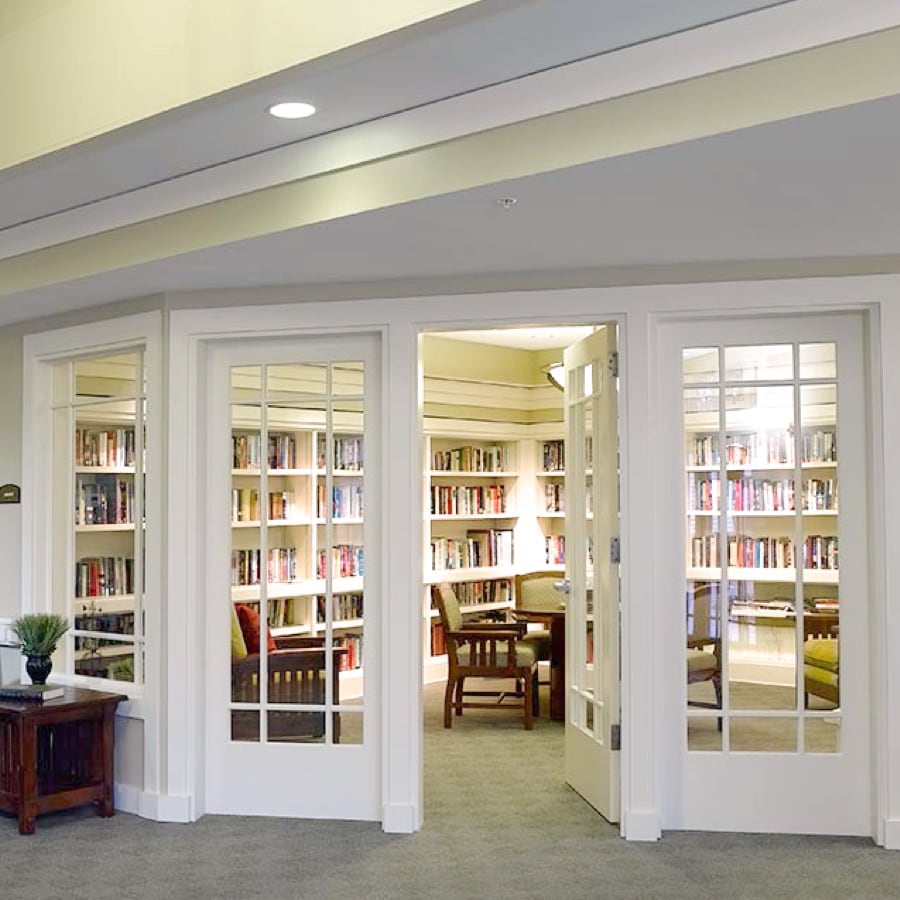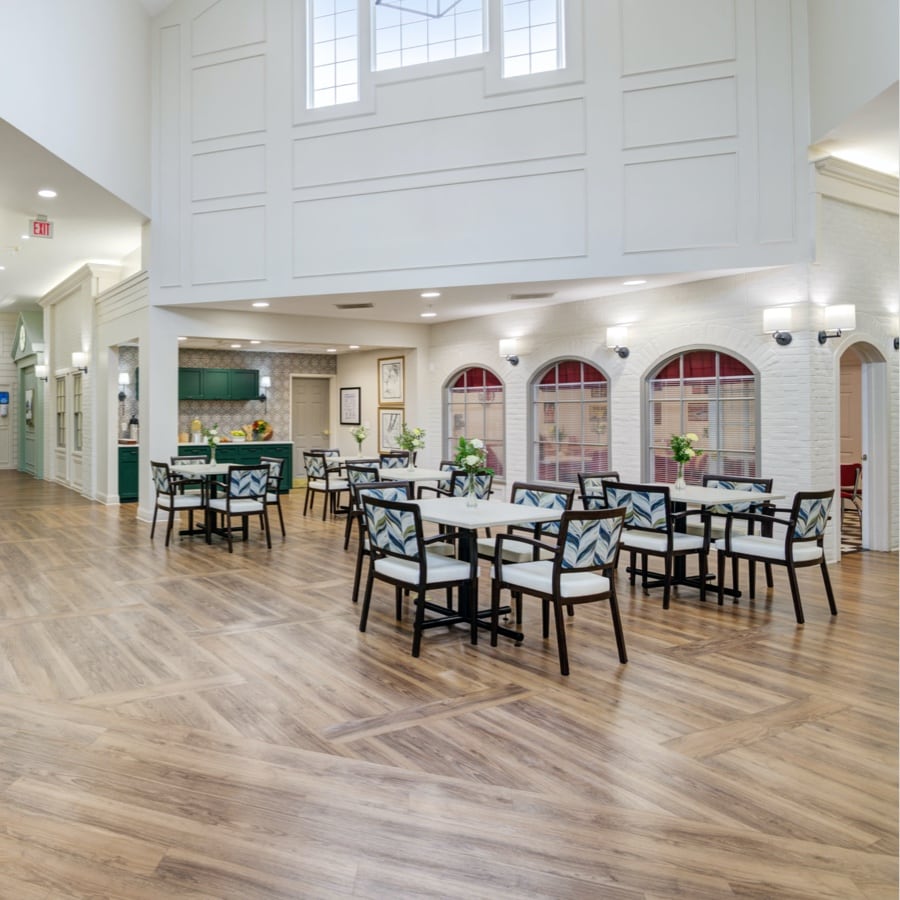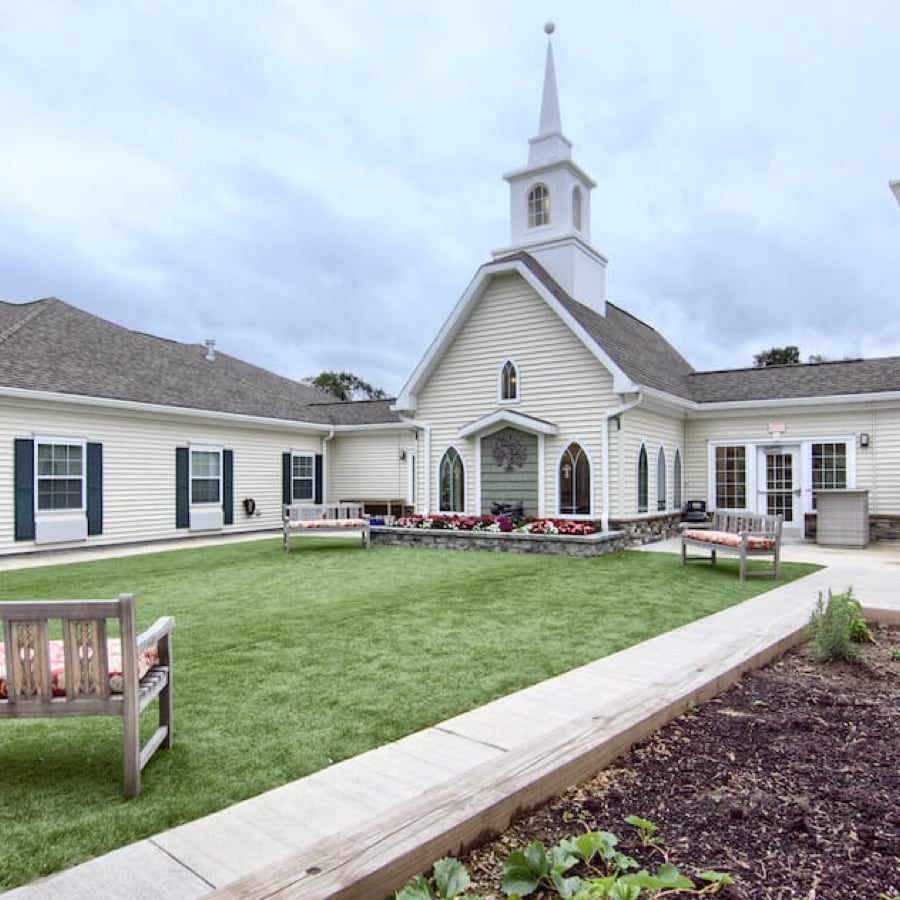When a loved one begins to show signs that indicate they might need a higher level of care then they can receive at home or they simply need an occasional helping hand, it can be difficult to decide which care option is the best choice. Assisted living and memory care are two possibilities. While each has its own benefits, there are important differences to understand before making any decisions.
Assisted living: a helping hand when needed.
Assisted living is a type of senior living that provides housing, personalized care and support with activities of daily living such as bathing, dressing and medication management. Residents for the most part lead independent lives, confident that a helping hand is available if needed for activities of daily living. Staff is usually on hand 24-hours a day, though residents often have a private apartment.
Services such as housekeeping and maintenance are designed to encourage each person to live as carefree a life as possible, with no more duties of home upkeep, in an atmosphere that encourages engagement, socializing and lifelong wellness. Residents enjoy access to opportunities for lifelong learning, special outings, exercise and fitness classes, entertainment, special events and more. Dining emphasizes both flavor and nutrition, served by wait staff in a pleasant dining area.
In many assisted living communities, care is included in the monthly rental fee or provided on an ala carte basis where you choose how much help your loved one wants and needs.
Memory care: specialized 24/7 attention.
Memory care is a higher level of care that specifically caters to those with Alzheimer’s disease or another form of dementia. Residents in memory care require 24/7 supervision in order to stay safe. They benefit from the purposeful design of a memory care setting; a “neighborhood” that is laid out to discourage wandering and frustration. Specially trained caregivers know how to respond to both verbal and physical cues and build a deep bond with a resident, nurturing trust and reducing anxiety.
In memory care, residents may participate in music therapy, arts and crafts as well as games. At Peregrine, we provide a number of signature programs that are designed to explore meaningful life experiences and stimulate long-term memory. It’s part of what we call The Peregrine Way™.®
How assisted living and memory care are alike:
- Both offer compassionate, personalized attention.
- Both provide access to assistance 24/7.
- Both offer hospitality services such as housekeeping, maintenance, transportation to scheduled appointments and more.
- Both offer assistance with activities of daily living (bathing, dressing, grooming, medication management).
- Both provide well-balanced, appetizing meals in a pleasant atmosphere.
- Both offer comfortable residences designed for maximum convenience and safety.
- Both engage residents in meaningful social activities, programs, and outings.
- Both provide access to physical and occupational therapies.
- Both assisted living and memory care offer the peace of mind of knowing your loved one is benefiting from a level of care designed specifically for their health and wellness.
How assisted living and memory care are different:
- Assisted living caregivers are chiefly concerned with assistance with activities such as dressing, grooming, medication management and other daily tasks. Memory care staff are specifically trained to work with the cognitive and emotional needs of those with dementia.
- Staff-to-resident ratio is higher in memory care, where residents are supervised 24 hours a day.
- A person requiring round-the-clock supervision and assistance would not be suited for assisted living (unless it was assisted living with a memory care neighborhood, which can be an option for those with mild to moderate cognitive impairment who desire to live independently).
- Memory care neighborhoods are secured and monitored to protect against wandering and help ensure resident safety. Assisted living residents are free to come and go.
- Memory care neighborhoods often have fewer residents to allow for more individualized attention.
- Daily routines are highly structured in memory care for the benefit of residents. Individuals in assisted living may plan their days as they choose.
Assisted living and memory care: options that can benefit your loved one.
As you consider what is best for your family, be sure to do your homework on which option feels like the right fit. Research online, talk to senior living professionals, ask others who have gone through the process. At Peregrine, many of our communities offer assisted living and memory care and all are committed to helping your loved one thrive.
We put residents first by creating a person-centered care plan designed to empower people to celebrate what makes them unique.
Contact us today to learn more and please download the free guide, Just The Facts: Guide to Assisted Living. We are here to help you!











